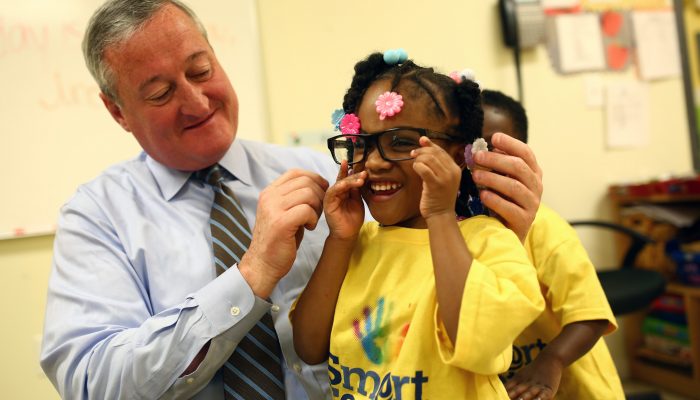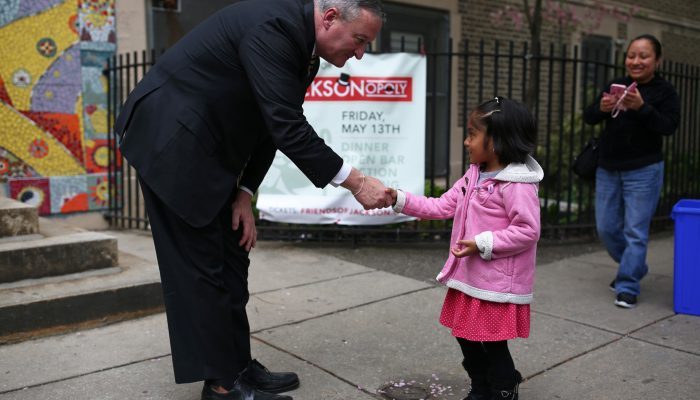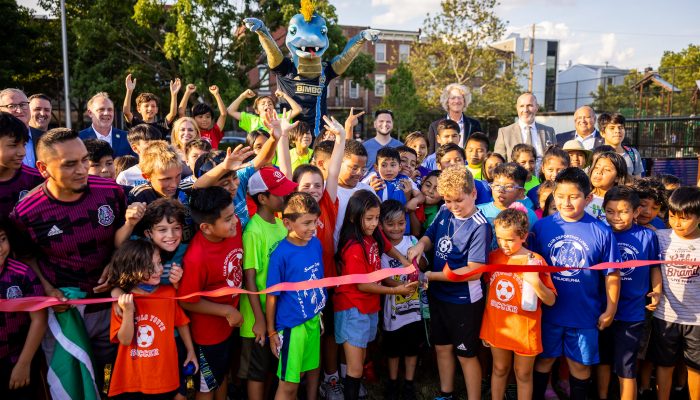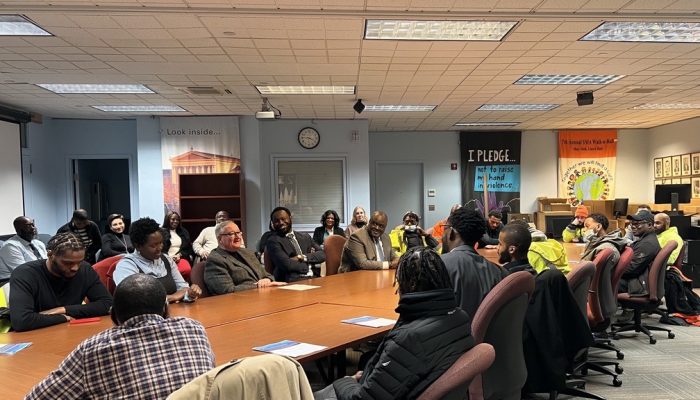No investment is more important than providing stable funding for the education of Philadelphia’s children. Achieving that vision will take a collective effort across the city.
Investing in our schools
The School District of Philadelphia has made recent gains in key areas including early literacy and graduation rates. While we’re moving in the right direction, it’s not fast enough. With the School District facing a deficit of over $900 million over the next five years, the City is focused on providing resources not only to stabilize the District’s finances, but to invest in quality programs to ensure the best outcomes for Philadelphia families.
This budget proposes funding that would allow District finances to stabilize. It would also support:
- Increasing early literacy: Specialized reading coaches for every elementary school, and expanding the focus on early literacy into grades 4 and 5.
- College and career readiness: Expanded and improved CTE programs, apprenticeship programs, IT internships and other high school pathways opportunities. Expanded college access through advanced placement courses, free SAT testing, and a middle-college program where high school students can earn an associate’s degree; More opportunities for more student to have career exposure and work experiences in summer and year-round. Additional 9th grade academies that provide academic supports and counseling and reduce the risk of dropping out.
- Creating safe and welcoming environments: School climate investments to enhance positive and safe school cultures. Capital improvements, including upgraded elementary classrooms, to address our schools’ many physical building needs.
- Bilingual supports: More bilingual counseling assistants to provide bilingual services and support to families and additional ELL teachers to ensure students are acquiring needed English language skills.
- High quality instruction: Supports for teachers including training for high school teachers to increase student achievement and engagement and funding to continue efforts to increase the diversity and quality of our teaching workforce.
This budget proposes raising $980 million for the School District over five years by:
- Increasing the City’s contribution by $100 million
- A 6% property tax increase to bring in $475 million (average residential property owner will pay $95 a year)
- Slowing the scheduled reductions in the Wage Tax to bring in $340 million
- The increase in local portion of real estate transfer tax will bring in about $66 million
Improving the delivery of City services
The Philadelphians who responded to our first resident survey in a decade made it abundantly clear that streets and sanitation are top concerns. We are not wavering from our goal of repaving more than 130 miles of streets each year by 2023.
We will advance Vision Zero, the plan to eliminate traffic-related deaths by 2030. We plan to spend $60 million over five years for re-engineering dangerous locations, traffic calming devices & bike lanes.
We’ll be purchasing new sanitation compactors to replace aging ones — increasing the reliability of this vital service to our residents.
We are also proposing funds for improvements to the City’s revenue collection system, applications and communications systems.
Improving public safety
For public safety, this budget reflects our commitment to protecting all neighborhoods from crime, particularly violent crime. We’re investing $100 million to make sure our police force has 6,500 officers — a level not reached since the recession of 2009. This will help our neighborhoods become safer, and improve officers’ abilities to fight crime.
We continue proposed increases to support the Philadelphia Fire Department. Since Mayor Kenney took office, this proposed budget would be a 24% increase in Fire’s personnel. This budget proposes increased funding for the Fire Department that will support:
- Logistics hub will provide state-of-the-art training facilities
- Increasing staff, including new paramedics, to over 2,600
- Expanding fleet of vehicles: 6 engines, 3 ladders and 11 medic units
Addressing the opioid crisis
In Philadelphia, there were about 1,200 overdose deaths last year. This epidemic is one of the most pressing public health crises our city has faced. This budget proposes additional funding for:
- Creating a medic unit that pairs emergency medical workers with outreach workers
- Developing “warm hand-offs” to more quickly connect recently overdosed people to treatment
- Distributing the overdose antidote, naloxone, to first responders and community members
- Providing “low-barrier” housing options that do not require sobriety.
- Investing in Police Assisted Diversion, which provides those with minor drug offenses the opportunity to find help rather than being arrested
Reducing poverty
We will increase the homestead exemption from $30,000 of assessed value to $40,000, which will reduce the tax burden on Philadelphia homeowners. We will invest $2.5 million in foreclosure prevention programs. We will also increase funding for the Philadelphia Land Bank and foreclosure prevention programs.
We will invest in our workforce development plan, which serves as a launching point for the bold steps needed to align education and workforce systems to the talent that our businesses need.
This budget also proposes increasing the Community College of Philadelphia’s funding by $1.5 million annually. It will open doors for thousands of our high schoolers.




